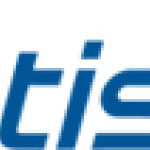- Industrie: Telecommunications
- Number of terms: 29235
- Number of blossaries: 0
- Company Profile:
ATIS is the leading technical planning and standards development organization committed to the rapid development of global, market-driven standards for the information, entertainment and communications industry.
An antenna of known performance characteristics used in determining transmission characteristics of equipment and associated propagation paths.
Industry:Telecommunications
An antenna that has a radiation pattern that is nondirectional in azimuth. Note: The vertical radiation pattern may be of any shape.
Industry:Telecommunications
An antenna that has an approximately constant input impedance over a narrow range of frequencies. Note: An example of a periodic antenna is a dipole array antenna. Synonym resonant antenna.
Industry:Telecommunications
An antenna that has an approximately constant input impedance over a narrow range of frequencies. Note: An example of a periodic antenna is a dipole array antenna. Synonym resonant antenna.
Industry:Telecommunications
An antenna that has the form of a helix. Note: When the helix circumference is much smaller than one wavelength, the antenna radiates at right angles to the axis of the helix. When the helix circumference is one wavelength, maximum radiation is along the helix axis.
Industry:Telecommunications
An antenna that may be real, virtual, or theoretical, and has a radiation pattern that can be used as a basis of comparison with other antenna radiation patterns. Note: Examples of reference antennas are unit dipoles, half-wave dipoles, and isotropic, i.e., omnidirectional antennas.
Industry:Telecommunications
An antenna that radiates or receives radio waves with a specific polarization. Note: For a singly polarized antenna, the desired sense of polarization is usually maintained only for certain directions or within the major portion of the radiation pattern.
Industry:Telecommunications
An antenna, such as a billboard antenna, in which the driven elements are situated at a predetermined distance from a surface designed to reflect the signal in a desired direction. Note: Reflective array antennas (a) usually have many driven elements working in conjunction with an electrically large reflecting surface to produce a unidirectional beam, (b) may be used to increase antenna gain, i.e., reduce radiation in unwanted directions, and (c) may contain parasitic elements as well as driven elements.
Industry:Telecommunications
An antiquated tape relay system in which the perforated tape is manually transferred by an operator to the appropriate outgoing transmitter.
Industry:Telecommunications
An application of push technology that allows users to automatically receive specific kinds of content.
Industry:Telecommunications
